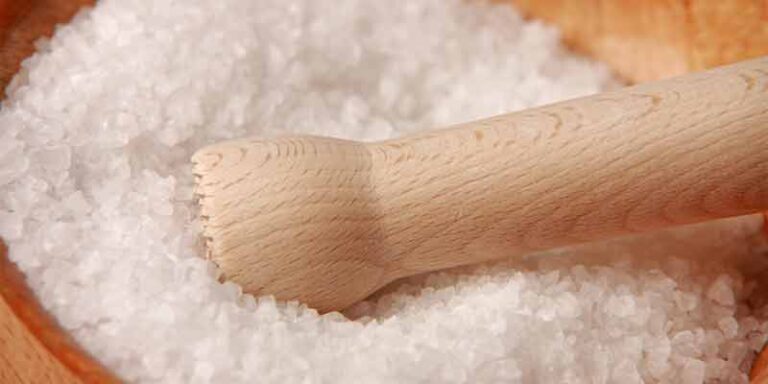Epsom salt is a popular type of salt that’s used as a healing agent and pain reliever. It can be ingested or added to a hot bath. Epsom salt is safe for humans, but what about chickens? Can chickens eat Epsom salt too?
So can chickens eat Epsom salt? Yes, chickens can eat Epsom salt. This salt is great for medicinal use such as to treat skin conditions, aches and pains, digestive issues, and even help them relax. While it’s safe for the chickens to eat Epsom salt, it could cause them health issues if they eat too much of it.
What Is Epsom Salt?

The salt gets its name from being discovered in a town called Epsom, located in Surrey, England.
This salt isn’t the typical salt that is used with food. Epsom salt is mainly used for medicinal use due to the chemical compound in the salt.
It’s safe to ingest in small amounts, but in large amounts, it can be harmful.
Essentially, Epsom salt works when it’s dissolved in water. As it dissolves, sulfate and magnesium ions are released into the water.
The particles are then absorbed by the skin if being used in a bath or absorbed by the body if it’s ingested.
Is Epsom Salt Safe for Chickens?
Epsom salt is safe for chickens when it’s used correctly and in the right amount.
Again, this salt is unlike regular salt you buy at the store for seasoning food. Epsom salt is mainly used to treat health-related issues.
There are various ailments in chickens that Epsom salt can be used to treat.
5 Benefits Of Epsom Salt for Chickens
Below are 5 of the most common ailments to give your chickens Epsom salt:
1. General Ailments
Chickens tend to get sick due to changes in the weather. A lot of backyard chicken owners will keep some Epsom salt handy.
When they notice one of the flock starts to look sick, they’ll give them some Epsom salt. Chickens that are ill will start to display signs such as pale or droppy comb, acting lethargic, or not laying eggs as expected.
Instead of finding medicine, the first thing to do is try an Epsom salt bath.
Place the chicken into the salt bath for a couple of minutes and the chickens should spring back to good health almost instantly.
2. Prevent Pest
Chickens that are active outdoors will more than likely get mites and other pests on them.
To help prevent these pests from getting onto the chickens, you can use Epsom salt. Dissolve the salt in water using a spray bottle. Once a day, spray their legs to keep scaly mites and other pests at bay.
3. Constipation and Diarrhea
Most chickens are not picky eaters and will eat almost anything that they can find. For that reason, digestive or crop issues are common for chickens.
If one of your chickens is having digestive issues such as diarrhea or constipation, Epsom salt might just be the remedy.
Epsom salt contains magnesium, and it’s effective for relief from diarrhea and constipation. It works so well that it’s FDA-approved as a laxative.
To administer Epsom salt to the chickens, you can use a syringe. Mix about a teaspoon of Epsom salt with an ounce of water until it’s completely dissolved. Then syringe it gently into their beak.
4. Egg-Bound Hens
If your hen is egg-bound or egg binding, it means they are having a problem laying an egg. The egg is literally stuck inside the hen. It’s usually an inch or so into their vent.
Egg binding can be fatal, especially if the egg breaks inside the hen.
When this happens, you can try to administer them an Epsom salt bath. It’s simple, and you can do it yourself without assistance.
Fill a container with some bath salt. Add lukewarm water until all the salt is dissolved. Then place the hen into the bath for about 10-20 minutes. This will help relax the muscles in the hen’s body.
After that, remove her from the salt bath and place her somewhere quiet to see if she can lay the egg.
5. Skin Issues
Chickens are prone to all kinds of skin ailments due to them being in the outdoors. If your chicken is having skin issues such as scaly legs, bites from mites, or bumblefoot, Epsom salt may help them.
For this, you’ll want to give them an Epsom salt bath. Doing so will help reduce pain, swelling, inflammation, and soothe skin issues.
Give the chicken a salt bath and see if the skin issues clear away. Also, the bath will help them relax too.
Conclusion
As you can see, Epsom salt is great for chicken. They can either be used to treat ailments both on the outside and inside the chickens. This salt is inexpensive, can be found at any supermarket, and easy to use. If you have a flock of chickens, it’s a good idea to have Epsom salt on hand.


